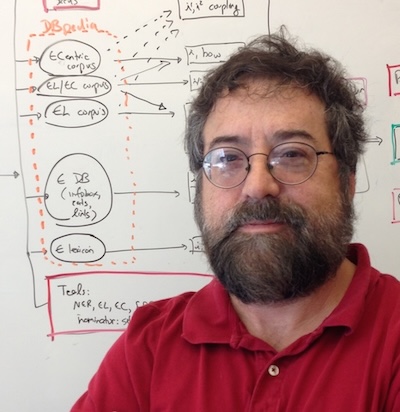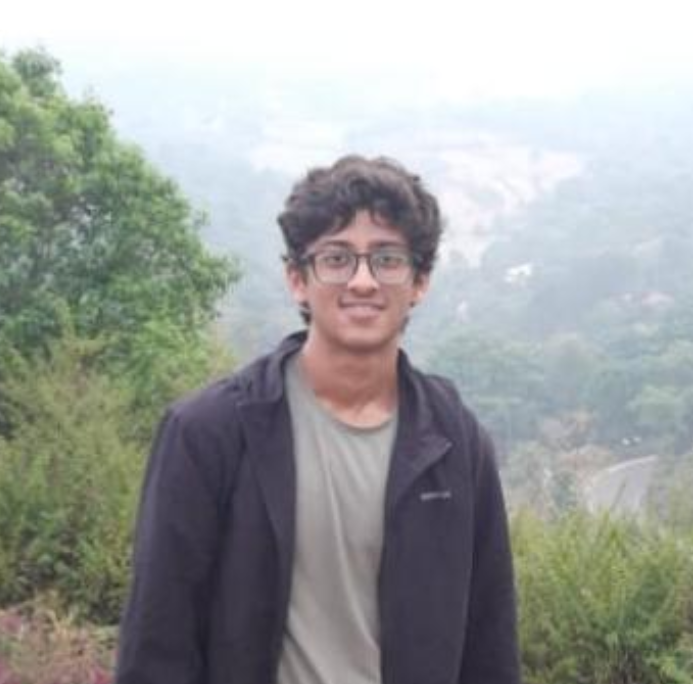Course Overview
Large datasets pose difficulties across the machine learning pipeline. They are difficult to visualize and introduce computational, storage, and communication bottlenecks during data preprocessing and model training. Moreover, high capacity models often used in conjunction with large datasets introduce additional computational and storage hurdles during model training and inference. This course is intended to provide a student with the mathematical, algorithmic, and practical knowledge of issues involving learning with large datasets. Among the topics considered are: data cleaning, visualization, and pre-processing at scale; principles of parallel and distributed computing for machine learning; techniques for scalable deep learning; analysis of programs in terms of memory, computation, and communication complexity; and methods for low-latency inference.
Prerequisites
Students are required to have taken a CMU introductory machine learning course (10-301, 10-315, 10-601, 10-701, or 10-715). A strong background in programming will also be necessary; suggested prerequisites include 15-210, 15-214, or equivalent. Students are expected to be familiar with Python or learn it during the course.
Textbooks
There will be no required textbooks, though we will assign additional reading in the schedule below.
Course Components
The requirements of this course consist of participating in lectures, homework assignments, in-class quizzes, two in-class exams, and a mini-project. The grading breakdown is:
- 20% Exam 1
- 20% Exam 2
- 30% Homework (5 Assignments, 6% Each)
- 10% Writting Sessions
- 15% Project or Mini-Project
- 5% Quizzes on Lecture Content
- Most lectures will be combined with a short quiz which should be taken within 48 hours.
Writting Sessions
As part of each homework, there will be in-class and online "writing sessions" that covers the main ideas from the homework. These writing sessions will be functionally similar to quizzes.
However, they will focus exclusively on homework content. They are designed to be (hopefully) easy if you have completed the homework as intended, and (hopefully) difficult or impossible if you have used simply asked
ChatGPT / Claude / Gemini / your classmates to do your homework for you.
Exams
You are required to attend all exams in
person and all quizzes in person, in class. Please
plan your travel accordingly as we will not be able
accommodate individual travel needs (e.g. by offering
the exam early) or conflicts (e.g. enrolling in a
second course).
Homework
The homeworks will be divided into two components:
programming and written. The programming assignments
may ask you to implement ML algorithms from scratch;
they emphasize understanding of real-world
applications of ML, building end-to-end systems, and
experimental design. The written assignments will
focus on core concepts, “on-paper” implementations of
classic learning algorithms, derivations, and
understanding of theory.
Project
Students will create groups and participate in a course project or mini-project. Project details will be released later in the semester.
Quizzes
Participation will be measured via in-class
quizzes. Quizzes can be completed up to 48 hours after the end of
class. Your lowest two quiz scores in the course will be dropped
at the end of the semester. We will not provide make-up quizzes
for days that you miss class.
If you enroll in the course
after a quiz has been released, you will be excused from that
quiz -- it will not count towards or against your final
grade.
Piazza
We will use Piazza for class discussions.
Please go to this Piazza website to join the course forum (note: you must use a cmu.edu email account to join).
We strongly encourage students to post on this forum rather than emailing the course staff directly (this will be more efficient for both students and staff). Students should use Piazza to:
- Ask clarifying questions about the course material.
- Share useful resources with classmates (so long as they do not
contain homework solutions).
- Look for students to form study groups.
- Answer questions posted by other students to solidify your own
understanding of the material.
The course Academic Integrity Policy must be followed on the message boards at all times.
Do not post or request homework solutions! Also, please be polite.
Gradescope
We use Gradescope to collect PDF submissions of open-ended questions on the homework (e.g. mathematical derivations, plots, short answers). The course staff will manually grade your submission, and you’ll receive personalized feedback explaining your final marks.
You will also submit your code for programming questions on the homework to Gradescope. After uploading your code, our grading scripts will autograde your assignment by running your program on a VM. This provides you with immediate feedback on the performance of your submission.
Regrade Requests
If you believe an error was made during manual grading, you’ll be able to submit a regrade request on Gradescope. For each homework, regrade requests will be open for only **1 week** after the grades have been published. This is to encourage you to check the feedback you’ve received early!
Course Staff
Instructional Staff

William W. Cohen

Jacob Rast
Teaching Assistants

Christopher Berman

Nikash Bhardwaj

Gunjan Dhanuka

Ayush Kumar

Harivallabha Rangarajan

Baihong Yuan

Samuel Zhou
Schedule
Schedule for Fall 2025 (subject to change)
General Policies
Late Homework Policy
You have 4 total grace days that can be used to submit late homework assignments without penalty. We will automatically keep a tally of these grace days for you; they will be applied greedily.
You may not use more than 2 grace days on any single homework assignment. Additionally, please note:
- All homework submissions are electronic. As such, lateness will be determined by the latest timestamp of any part of your submission. For example, suppose the homework requires submissions to both Gradescope Written and Programming. If you submit your Written on time but your Programming 1 minute late, your entire homework will be penalized for the full 24-hour period.
- Once you have exhuasted your late days any submission up to 24 hours late will recieve a 50% penalty. Any work submitted after 24 hours will be graded but will not be eligible for any credit.
Extensions
In general, we do not grant extensions on assignments. There are several exceptions:
- Medical Emergencies: If you are sick and unable to complete an assignment or attend class, please go to University Health Services. For minor illnesses, we expect grace days to provide sufficient accommodation. For medical emergencies (e.g. prolonged hospitalization), students may request an extension afterwards by contacting their Student Liaison or Academic Advisor and having them reach out to the education associate Jacob Rast on their behalf.
- Family/Personal Emergencies: If you have a family emergency (e.g. death in the family) or a personal emergency (e.g. mental health crisis), please contact your academic adviser or Counseling and Psychological Services (CaPS). In addition to offering support, they will reach out to the instructors for all your courses on your behalf to request an extension.
- University-Approved Absences: If you are attending an out-of-town university approved event (e.g. multi-day athletic/academic trip organized by the university), you may request an extension for the duration of the trip. You must provide confirmation of your attendance, usually from a faculty or staff organizer of the event.
For any of the above situations, you may request an extension by emailing Jacob Rast (jrast@andrew.cmu.edu). The email should be sent as soon as you are aware of the conflict and at least 5 days prior to the deadline. In the case of an emergency, no notice is needed.
Audit Policy
Official auditing of the course (i.e. taking the course for an “Audit” grade) is not permitted this semester.
Unofficial auditing of the course (i.e. watching the lectures online or attending them in person) is welcome and permitted without prior approval. Unofficial auditors will not be given access to course materials such as homework assignments and exams.
Pass/Fail Policy
Pass/Fail is allowed in this class, no permission is required from the course staff. The grade for the Pass cutoff will depend on your program. Be sure to check with your program / department as to whether you can count a Pass/Fail course towards your degree requirements.
Accommodations for Students with Disabilities
If you have a disability and have an accommodations letter from the Disability Resources office, I encourage you to discuss your accommodations and needs with Jacob Rast as early in the semester as possible. I will work with you to ensure that accommodations are provided as appropriate. If you suspect that you may have a disability and would benefit from accommodations but are not yet registered with the Office of Disability Resources, I encourage you to contact them at
access@andrew.cmu.edu.
Academic Integrity Policies
Read this Carefully
Collaboration among Students
- The purpose of student collaboration is to facilitate learning, not to circumvent it. Studying the material in groups is strongly encouraged. It is also allowed to seek help from other students in understanding the material needed to solve a particular homework problem, provided no written notes (including code) are shared, or are taken at that time, and provided learning is facilitated, not circumvented. The actual solution must be done by each student alone.
- At no point while your homework is open and being worked on should you communicate with classmates about the specific problems or solutions.
- The presence or absence of any form of help or collaboration, whether given or received, must be explicitly stated and disclosed in full by all involved. Specifically, each assignment solution must include the corresponding collaboration section.
- If you gave help after turning in your own assignment and/or after answering the collaboration section, you must update your answers before the assignment’s deadline, if necessary by emailing the course staff or a Piazza post.
- Collaboration without full disclosure will be handled severely, in compliance with CMU’s Policy on Academic Integrity.
Previously Used Assignments
Some of the homework assignments used in this class may have been used in prior versions of this class, or in classes at other institutions, or elsewhere. Solutions to them may be, or may have been, available online, or from other people or sources. It is explicitly forbidden to use any such sources, or to consult people who have solved these problems before. It is explicitly forbidden to search for these problems or their solutions on the internet. You must solve the homework assignments completely on your own. We will be actively monitoring your compliance. Collaboration with other students who are currently taking the class is allowed, but only under the conditions stated above.
“Found Code” and Generative AI
For all assignments, you are encouraged to read books
and other instructional materials, both online and
offline, to help you understand the concepts and
algorithms taught in class. These materials may
contain example code or pseudo code, which may help
you better understand an algorithm or an
implementation detail.
However, when it comes time to work on your homework you must follow the policies for "from scratch" and "open book" assignments below:
- For assignments or problems marked as "from scratch"
or "closed book", when you implement your own solution
to an assignment, you must put all materials aside,
and write your code completely on your own, starting
“from scratch”. Specifically, you may not directly use
any code you found, generated, or came across, except
to the degree that you understand the assignment
better after studying it, and any notes or results
from a collaboration should remain closed while
writing up the solution, so that no material is
accidentally transferred.
Further, for these assignments you should
disclose any found code, use of generative AI, or
student-to-student collaboration in your collaboration
statement.
-
For assignments or problems marked as "open
book", you may use found code or generative
AI. However, most of these problems will be
accompanied by closed-book questions to help you
test your understanding of the problem.
Students are encouraged to use generative AI tools (such as ChatGPT) as resources or as collaborators on a course project.
Duty to Protect One’s Work
Students are responsible for proactively protecting their work from copying and misuse by other students. If a student’s work is copied by another student, the original author is also considered to be at fault and in gross violation of the course policies. It does not matter whether the author allowed the work to be copied or was merely negligent in preventing it from being copied. When overlapping work is submitted by different students, both students will be punished.
To protect future students, do not post your solutions publicly, neither during the course nor afterwards.
Penalties for Violations of Course Policies
All violations (even first one) of course policies will always be reported to the university authorities (your Department Head, Associate Dean, Dean of Student Affairs, etc.) as an official Academic Integrity Violation and will carry severe penalties. The penalty which will be recommended by the Professor for violation of the academic integrity policy is failure in the course. For repeat offenders, violoation of academic integrity policies can even lead to dismissal from the university.
Course Calendar
Objectives
- Given a large scale machine learning task, such as large-scale training or large-scale data preparation, predict which
methods and platforms will be most suitable.
- Implement non-trivial workflows using current scalable/parallel ML platforms.
- Analyze the time, compute, and space complexity of methods for large-scale machine learning.
- Efficiently review recent results in machine learning and critically evaluate them.
- Present experimental results and other technical material clearly in written form.
Acknowledgments
This course is based in part on material developed by Virginia Smith, Ameet Talwalkar, Geoffrey Gordon, Heather Miller, Barnabas Poczos, and Anthony Joseph.
Previous courses:
10-405/10-605, Spring 2025;
10-605/10-805, Fall 2024;
10-405/10-605, Spring 2024;
10-605/10-805, Fall 2023;
10-405/10-605, Spring 2023;
10-605/10-805, Fall 2022;
10-405/10-605, Spring 2022;
10-605/10-805, Fall 2021;
10-405/10-605, Spring 2021;
10-605/10-805, Fall 2020;
10-405/10-605, Spring 2020;
even older versions of 10-405/10-605/10-805.








